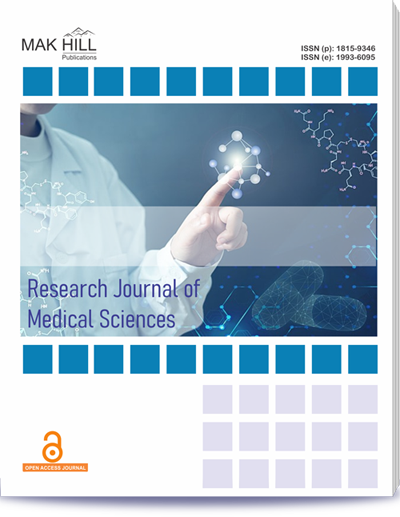
Research Journal of Medical Sciences
ISSN: Online 1993-6095ISSN: Print 1815-9346
Abstract
Obesity, recognized as a global health concern, affects myriad health aspects. The influence of obesity on cardiovascular and metabolic health has been well‐documented but its relationship with fertility remains underexplored. This research aims to decipher the interplay between obesity and fertility outcomes among 300 reproductive‐aged women. In this cross‐sectional study, 300 reproductive‐aged women, aged 18‐40 years, were evaluated. Participants were stratified based on their body mass index (BMI) into four groups underweight, normal weight, overweight and obese. Parameters like menstrual regularity, ovulatory status, time taken to conceive and miscarriage rates were meticulously recorded. Statistical tools were employed to discern correlations between BMI classifications and fertility indicators. Obese participants demonstrated a pronounced tendency for irregular menstrual cycles and anovulatory events compared to women in the normal BMI bracket. The duration to achieve conception was conspicuously prolonged among obese participants. A conspicuous observation was the augmented miscarriage rates in the obese group relative to the normal BMI segment. Obesity markedly modulates fertility outcomes in reproductive‐aged women. This underscores the imperative for medical professionals to prioritize weight management when counseling on reproductive health. Proactive interventions focusing on weight regulation could potentially ameliorate fertility results and curtail reproductive challenges in this demographic.
How to cite this article:
Milind Babasahed Patil. The Impact of Obesity on Fertility Outcomes: Insights from a Cross‐Sectional Evaluation of Reproductive Aged Women.
DOI: https://doi.org/10.36478/10.59218/makrjms.2023.10.127.130
URL: https://www.makhillpublications.co/view-article/1815-9346/10.59218/makrjms.2023.10.127.130